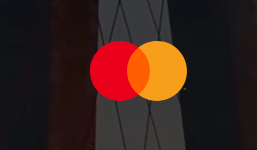Figment Expands into UAE: Staking, Strategy, and Sharia-Aligned Opportunities
Unlock Blockchain speaks with Christoph Richter, Figment’s new Head of MENA, on why the UAE is key to their global growth
Figment, one of the world’s largest independent providers of institutional staking infrastructure, has taken a decisive step into the Middle East, appointing Christoph Richter as its first Head of Business Development for the region.
In an exclusive interview with Unlock Blockchain, Richter shared why the UAE was chosen as Figment’s entry point, how a new partnership with Tungsten will shape their growth, and why staking could become an integral part of investment strategies for banks, family offices, sovereign funds — and potentially, Islamic finance institutions.
Why the UAE, Why Now?
“The UAE has among the most developed digital asset frameworks in the world,” Richter said, pointing to ADGM, VARA, and DIFC as pillars of the region’s regulatory foundation.
“Abu Dhabi calls itself the capital of capital these days, and the numbers back it up — assets under management in ADGM alone grew over 200% in 2024,” he added.
That surge, paired with global names like Binance, OKX, and Deribit securing VARA licenses in Dubai, created a momentum Figment couldn’t ignore. “There’s an awareness of digital assets that filters from the government all the way down to retail investors,” Richter noted. “That’s a rare environment to step into.”
The Tungsten Connection
Figment’s entry is anchored by its partnership with Tungsten, a leading UAE digital asset custodian recently acquired by Zodia Custody.
“Locally, you need a strong partner,” Richter explained. “Tungsten is the largest custodian for digital assets here. For institutions, the journey starts with: Where do I safe‑keep my assets? That’s Tungsten. Then comes the next question: How do I generate rewards? — and that’s where Figment steps in.”
This positioning allows Figment to deliver a “staking as a service” model that doesn’t require custody of client funds, an important factor for institutions prioritizing security and compliance.
Clarifying Staking for Institutions
A big part of Richter’s mission is education. “Many players in the market have branded staking for products that are actually lending products — and that’s not true,” he said firmly.
“Staking is not lending. It is the process of validating transactions on a proof‑of‑stake blockchain. You lock up tokens to help secure the network, and in return, you receive a reward for work performed. It’s not yield. It’s not interest.” This clarity matters for everyone — from private banks to family offices and retail investors — and also opens doors for discussions around Islamic finance.
Islamic Finance: An Alignment, Not a Limitation
When asked about staking’s relationship to Islamic finance, Richter outlined how the core principles are compatible — even if formal Sharia certification has not yet been granted. “The basic principles comply with Islamic finance,” he said, “but for it to be formally Sharia-compliant, it needs to be approved by a Sharia board — and that second step hasn’t happened yet.”
He highlighted three points that align staking with Islamic finance frameworks:
- No fixed return — staking rewards fluctuate with network performance.
- Reward for work performed — payments come from validating transactions, not passive interest (riba).
- Profit sharing model — clients retain custody, and Figment only earns through a share of rewards.
While this alignment is notable, Richter was clear that Figment’s target audience is not limited to Islamic finance players. The company is building staking solutions for all institutions and investors, from global asset managers to local family offices. The Sharia alignment simply means the conversation can extend further, reaching a wider spectrum of investors in the region.
Licensing and Regulation
One question Figment often faces in the UAE is whether its services require a local license.
“Staking is an interesting one because we are a software provider,” Richter explained. “We are not a regulated financial entity. We facilitate the infrastructure and end‑to‑end staking experience, but we never take custody over anyone’s funds. Because of that, we are not required to be licensed as such. We provide staking as a service.”
This model — non‑custodial and infrastructure‑focused — allows Figment to operate within UAE frameworks while maintaining the compliance-first mindset that institutional investors expect.
From UAE to the Wider Region
For Figment, the UAE is both a market to serve and a springboard. “The UAE is the natural starting point for digital assets today,” Richter said. “But Saudi Arabia is coming. Qatar is moving. This region is on the brink of massive growth.”
Saudi Arabia hasn’t issued crypto licenses yet, and Qatar remains cautious — but the UAE’s leadership could set the tone for what comes next.
“The UAE can influence how other MENA markets approach staking,” Richter said. “By building here — and building correctly — we can help shape the next wave of adoption across the region.”
Looking Beyond the Gulf
While the UAE is Figment’s launchpad, Richter pointed to other markets where digital assets are taking on different roles. “Turkey is a very exciting market,” he said. “Crypto adoption there is huge, and regulation has come a long way in recent months.”
For Richter, Turkey illustrates a different kind of digital asset story. Years of currency devaluation — with the Turkish lira losing over 90% of its value against the euro in a decade — have pushed many citizens to seek alternatives. “It’s not just about portfolios and diversification,” he explained. “In markets like Turkey, Lebanon, or Argentina, digital assets can be about protecting savings.”
He noted that Turkey’s government has also taken a pragmatic approach. “They’ve kept their local banks involved,” Richter said. “In many countries, global players dominate the local markets. Turkey is different — they’ve recognized the need for digital assets but ensured Turkish banks stay part of the process.”
The Long Game
For Richter, success isn’t about quick wins. “Many foreigners come to the UAE with a short‑term mindset,” he said. “That’s not us. We’re here to educate, to listen, and to adjust our offering to fit the region.”
That education will benefit all investors — traditional and Islamic, institutional and retail. “When institutions eventually hold digital assets on their balance sheets, they’ll have to ask: What now? Custody is step one. Understanding staking — and seeing how it fits into different investment and cultural frameworks — is step two.”
Staking’s Role in the Future of Regional Finance
Figment has been staking since 2018, supporting over 40 networks including Ethereum and Solana. Its UAE expansion isn’t just a geographic move — it’s an attempt to redefine staking as a trusted, institution-ready, and culturally aligned product in one of the world’s most important financial hubs. Richter summed it up best in his conversation with Unlock Blockchain: “Staking is a reward for work performed — not interest, not lending. It aligns interests between Figment and its clients. And in the UAE, we now have the partners and the platform to make it real.”





